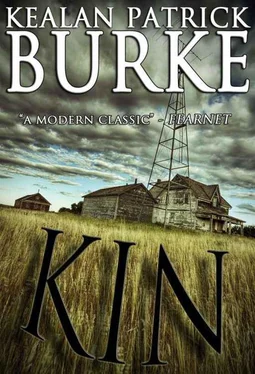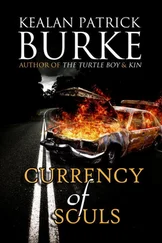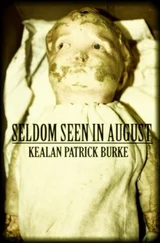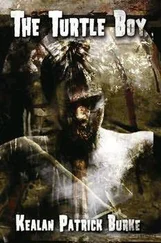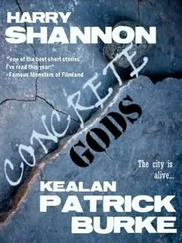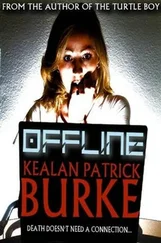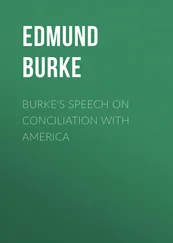Claire moved back until she was pressed against the wall, her shirt stuck to her skin with sweat. Dust rained down around her, turned to fireflies in the beam from her flashlight. “You’re a fucking psycho, just like the rest of them. You might as well be the one cutting people up.”
McKindrey raised his hands in a gesture of placation. “Look, all I’m goin’ to do is take you for a ride that’s all.”
“A ride where?”
“Into Mason City, to the state police. They’ll make sure you get home.”
“You expect me to believe that you’re going to hand me over to the police after just telling me you’ve been profiting from the murders of all these people over the years?”
McKindrey shrugged, his smile wide.
“If you touch me,” Claire said. “I’ll kill you.”
“Oh c’mon, Missy. I’m the one with the gun.” As he spoke he unclipped his holster, pulled out his weapon and drew back the hammer. “Now it’s been an unpleasant enough day for me already. Don’t make it worse. My foot’s killin’ me, my nose feels like it’s full of fire ants, and all I want is to get home and get drunk, all right? So you’ll be doin’ me a nice favor if you just come along.”
There was less than six feet between them.
She didn’t move.
He leveled the gun at her.
“I’m not going anywhere with you.”
“Well, if you don’t, someone else’s just gonna come by and be a lot less pleasant about it.”
“Like your friends, those killing fucks you’re working for?”
“Honey,” he said sweetly, and closed the distance between them. “I’m done talkin’. Now you’re gonna move, and that’s all there is to it.”
“What did they do with them?”
“With who?”
“My friends.”
“You know that well as I do. Scattered ’em around the doctor’s place.”
“What did they do with the rest of them?”
McKindrey sighed. “Buried ’em.”
“Where?”
“Different places. Some parts here, some in the woods, some out in that field with the dead tree.”
That gave Claire pause and for the briefest of moments she experienced a blissful absence of any kind of feeling at all. Sound itself seemed muted, the room blurring as an image of the field with the wisps of cotton floating upward in the breeze superimposed itself over the present.
Everything isn’t dead , she thought then. Only gone .
Finch was dead.
Beau knew it as soon as he woke and put a hand on his friend’s shoulder. The man’s skin was icy cold to the touch, and a search for a pulse yielded nothing. Beau shook his head and expelled a ragged breath. He had let Finch down, though of course Finch would never have seen it that way. To a man like that, culpability would always be directed inward and everything that happened in his life would be a result of his own failings. Finch had existed to suffer, driven by a burning rage he had never understood, a cold engine that drove him toward his own inexorable death without ever revealing its motives. It was like this for some people, but not for Beau, though he considered himself equally directionless. Born into a poor but nurturing family, he had depended on his instincts to survive on the cruel streets, and his fists had seen him through. He was a walking cliché—kid born in the ghetto made strong by necessary violence, and yet he shared none of the characteristics of his brothers, who walked with an attitude, their shoulders low, eyes frosty and darting from face to face as if searching for one that required punishment. Anger had never been a driving force in Beau’s life, only sorrow, but the origin of that sorrow was as much a mystery as Finch’s rage. It had felt as if he were grieving for people who had died long before he’d come into the world, and had found himself forever unfulfilled, as if he’d been born without some vital component necessary for total happiness. He’d drifted, seeking people more emotionally deficient than himself, for in them he found a kinship. The shared unhappiness did not cancel either out, but neither did it exacerbate it, and this was how he lived. In Finch he found a carnival mirror, a distorted reflection of himself that bound him to the man.
It had led him here, to the dark and the cold, with a gash in his stomach that was bleeding profusely and playing with his consciousness. Beside him, Finch had found peace, and for a moment Beau envied him so much that his eyes started to close, and he quickly shook his head, braced a hand on the ground and raised himself up. He cried out and stopped, but did not abandon the progress he’d made. With one hand clamped over his belly, he drew his legs beneath him, relying on their strength to help him up, and they did. He stood, shoulder pressed to the tree, gasping, his knees trembling, the front of his jeans soaked with blood. Beau was weak from blood loss, but he was not yet dead, and that was something. He took a moment to steady himself and looked down at Finch, who was little more than a long shadow with a pale smudge for a face. Beau made a silent promise that he would do everything he could to make sure Finch wasn’t left here to rot or be picked apart by animals, even if it meant burying him himself. “No man left behind” was the motto for fallen soldiers on the battlefield, but Beau wasn’t sure he’d ever really understood it. What lay at his feet was no longer anyone he knew. Whatever happened next would hardly bother Finch. He was gone. Only the body remained. Desecration , he thought. We leave no one behind to be desecrated by the enemy . Still, he wondered why it made such a difference to anyone. It was the soul and the spirit people mourned, not the body, so why should it matter what became of it?
He realized such musings were simply a way to stall, to avoid moving when he knew it was going to be agony to do so. It was also a means of trying to disseminate the guilt he already felt at the thought of leaving Finch here alone. But if he didn’t, he too would die.
He pushed himself away from the tree and stumbled through the woods toward the cabin. He had been mistaken about the agony, he realized. There was no agony in his belly. It was utter torture.
The moonlight faded, and for one panicked moment, Beau thought it was unconsciousness coming to claim him and he stopped, leaned against a tree until the light silvered the woods once more. Breath pluming in the air before him, he focused on the murky yellow light from the cabin window up ahead and hurried on, the blood sticky between his fingers.
Keep goin’ , he told himself. Not far. Get there and you can sit and figure out what happens next. But keep movin ’.
The light in the cabin window was a beacon, drawing his wounded form toward it. In his waistband, the gun, cold against his skin. In his pocket, the reassuring weight of his cell phone. He prayed there was a signal. There was only one call worth making now and he would do it even if his injury conspired to leave him dead on the forest floor. One call, and perhaps everything they’d done wouldn’t have been in vain after all.
Keep m…
He was within hailing distance of the cabin when the world abruptly swept up and away and nausea gripped him.
The darkness came again.
This time it was not the moon.
* * *
Despite his injury, McKindrey’s approach had up until this moment been confident, as if he knew without a doubt how this was going to play out. But now, with Claire backed up against the wall, he stopped and licked his lips. In the light through the windows, she could see perspiration beading his sallow skin. He did not look nervous, but wary, the gun pointed at her chest. His eyebrows were knitted, as if he’d suddenly forgotten the finer points of hostage taking.
Читать дальше
